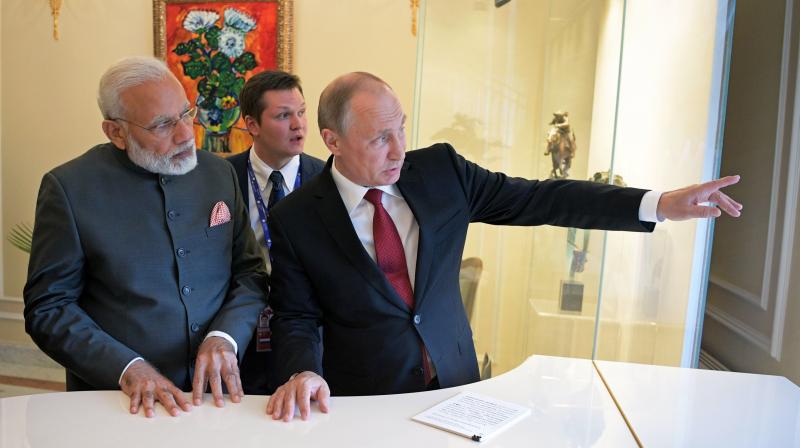Normality returns to Delhi-Moscow ties

Prime Minister Narendra Modi’s two-day visit to Russia, in the course of his four-nation European sojourn, appears to have restored a sense of balance and normality to the critical New-Delhi-Moscow ties, which for some time have given the impression of entering an uncertain phase. This was on account of India’s pronounced tilt toward the US in the politico-military sphere, and Moscow holding joint military drills with Pakistan and sending the latter some arms to fight terrorism, which appeared to New Delhi a sign of shifting alliances. This Russia was a far cry from the Communist-era Moscow that consistently exercised its veto in India’s favour on Kashmir in the UN Security Council. The centerpiece of Mr Modi’s Russia journey was the conclusion in St Petersburg last Thursday of the general framework agreement and credit protocol for two additional nuclear reactors at Kudankulam. For the past eight months Moscow had tried to get India to sign on the credit protocol so that work may begin on Kudankulam nuclear power plant’s reactors 5 and 6, but India, inexplicably, appeared to be dilatory.
It is salutary that uncertainty on this score has been settled, and Russian officials have rightly indicated that this was the biggest takeaway from the summit. Any long-term prevarication on India’s part could have cooled ties to the delight of both Islamabad and Beijing. But it is not clear yet if our ties remain as warm as before and whether Moscow will politically come to our aid if, in the shifting geopolitical climate today, Kashmir is brought to the UNSC by Pakistan and its friends. In a media interaction, President Putin alluded to “trust-based” ties between the two countries, specially in the “delicate” missile field. He also noted that relations with India will not be diluted on account of Moscow’s growing ties with Pakistan and other countries. He said Russia’s military relationship with Pakistan was “not tight”.
Yet, he did not hesitate to side-step a question on Kashmir, saying “it is up to you” to assess whether Pakistan is fuelling terrorism in Kashmir. New Delhi would do well to ponder over this, although Mr Putin appeared to back Mr Modi on India’s terrorism-related worries, saying on Friday, after the Indian leader’s address to the St Petersburg International Economic Forum, which was attended by UN Secretary General Antonio Guterres, that Indian concerns relating to terrorism were “not imaginary”. Prime Minister Modi spoke of the importance of India’s ties with Russia, and urged Russian industry to invest in defence manufacturing in India. But it is the political side of the relationship that needs nurturing.

